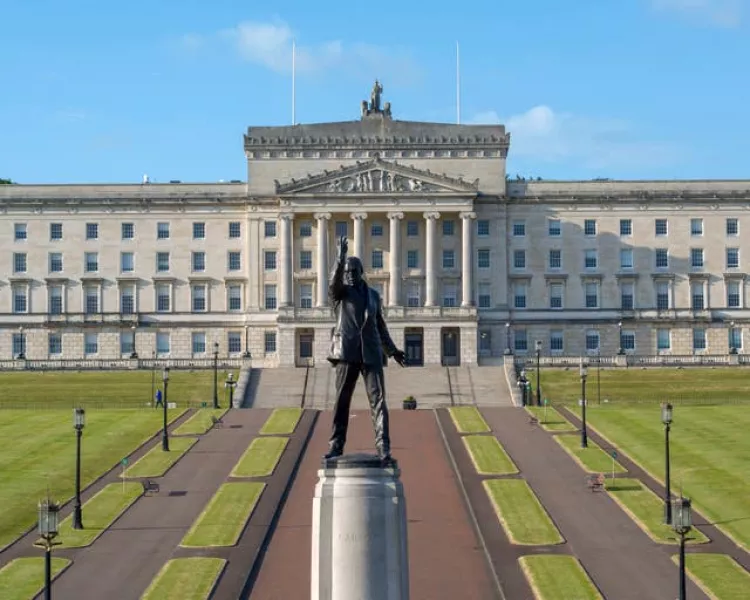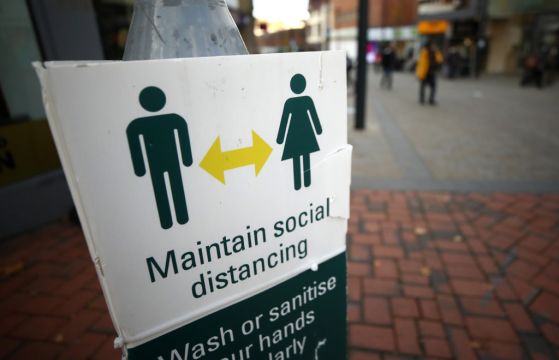Stormont ministers have agreed a further wave of Covid-19 relaxations for Northern Ireland.
The measures, which include the end of social-distancing requirements for outdoor activities and a reduction of the distance to one metre for indoor settings, are set to come into effect on July 26th.
From that date, people returning from amber list countries who have been fully vaccinated in the UK will not have to self-isolate on arrival in Northern Ireland or take a test eight days after their return. A PCR test on day two of return will still be required.
While the move on international travel quarantine has been given a firm green light for July 26th, the other relaxations agree by ministers that are earmarked for that date will need final ratification by the Executive on July 22nd.
Those include theatres and concert halls being allowed to welcome back audiences, with some mitigation measures in place, and conferences and exhibitions being able to resume.

Ministers agreed the proposals at Thursday’s executive meeting, as a further 627 cases of the virus were reported in the region.
Under the planned relaxations, a limit on gatherings in indoor domestic settings would increase from six to 10, from no more than three households.
A 15-person cap on the size of outdoor domestic gatherings will remain but a five-household limit would be removed.
Household bubbling provisions in the rules are also to be dropped.
Other moves earmarked for the end of the month include allowing close contact services to accept walk-in customers.
Scrapping face masks
The legal requirement to wear face coverings in places of worship is also set to be removed on July 26th.
In terms of schools, classroom bubbling and the use of face masks in classes are to be removed from guidance. Current restrictions on how MoT tests are carried out in Northern Ireland are also to be relaxed.
Restrictions on indoor live music are set to be eased on July 26th, including an end to a requirement for the sound to be kept to an ambient level. The decision on the full return of live music and dancing at events has been deferred until August.
Other proposals due to be considered in August include the removal of rules around all face coverings, with regulations potentially replaced by guidance, and the complete removal of social distancing requirements.
In August, ministers will also discuss removing all restrictions on funerals; ending contact tracing requirements; removing self-isolating requirements; scrapping the need to carry out Covid-19 risk assessments; removing all other coronavirus international travel restrictions and the Covid-19 guidance on travel within the Common Travel Area.

DUP First Minister Paul Givan said July 26th would be a “very significant” day for Northern Ireland’s journey back to normality.
While the decisions have been taken amid rising infection rates, Mr Givan said Stormont health experts had provided assurances to ministers that the link between transmission and fatalities had been “considerably weakened” by the vaccine rollout.
The First Minister said his party had wanted to see some of the restrictions relaxed at a quicker pace, noting that the DUP would have liked to see the moves on domestic indoor gatherings and the return of concert venues coming into force immediately.
“It’s clear on some issues we would like to see progress being made at a faster pace and we believe that that’s backed up by all of the data and the scientific evidence, the impact on our economy, the impact on family and wider society that these changes can happen at a faster rate,” he said.
“Other ministers have decided that they want to move forward at a slower pace so we did land on a road map which now has July 26 as a very significant date.”
'Boris Johnson approach'
Following the July 22nd ratification meeting, Mr Givan said ministers would meet again on August 12th with the intention of pushing ahead with further relaxations on August 16th.
“Certainly we’re well on the way in terms of our roadmap out of these restrictions before the end of the summer,” he added.
Sinn Féin deputy First Minister Michelle O’Neill reiterated her view that the moves outlined for England on July 19th were “reckless” and Stormont would not be following the “Boris Johnson approach”.
She said Executive ministers had agreed a “cautious and balanced” way forward.
“We ourselves as an executive, based on our own information, on our own data, have taken decisions today that demonstrates progress, demonstrates that we’re able to continue to make some easements,” said Ms O’Neill.
“But it is certainly a cautious approach, but it’s a steady one and, in my opinion, is the right one and is a balanced way forward.”







